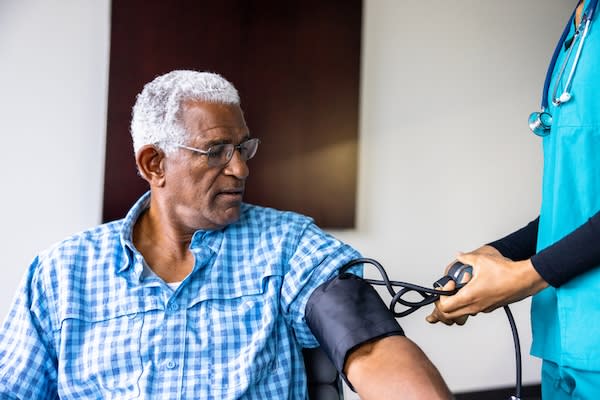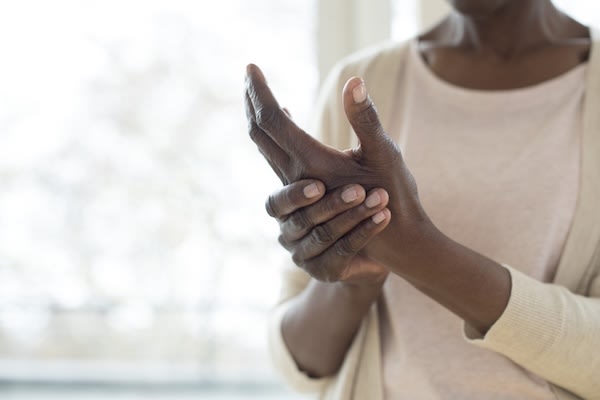What is long COVID?
[5 MIN READ]
In this article:
-
Providence is one of the health care providers participating in RECOVER, a research initiative studying long COVID.
-
The symptoms of long COVID vary widely depending on the individual.
-
Researchers are studying whether the antiviral drug Paxlovid can successfully treat long COVID and improve people’s quality of life.
What is long COVID?
Since COVID-19 emerged as a pandemic on the world stage in 2019, more than 7 million people have died as a result of contracting the coronavirus. But the deaths, of course, are not COVID’s only casualties. Millions more now suffer from what’s known as long COVID — chronic health problems and long-term effects of COVID-19 that appear to have started with the respiratory illness.
Providence Sacred Heart Medical Center in Spokane, Washington, is part of the national RECOVER study, a research initiative studying long COVID, its effects and potential treatments. Katherine Tuttle, M.D., is a nephrologist and the executive director of research for Providence. Recently, she discussed long COVID during Providence’s Talk With A Doc podcast.
What is long COVID?
To understand long COVID, Dr. Tuttle says, you need to comprehend the acute — or sudden onset — stages of the virus and common symptoms. People who have COVID-19 often suffer from respiratory symptoms, extreme fatigue and a flu-like syndrome.
“Long COVID is really the long-term consequences of the viral infection after recovery from the acute infection,” she says. “The acute COVID-19 infection can take anywhere from five days to two weeks, but then, after that, people are left with lingering symptoms that are quite bothersome. The definition of long COVID is evolving and, in fact, part of the RECOVER study has been to really define what it is, because people feel bad in different ways.”
Dr. Tuttle continues: “What we have learned is that there are several different types of syndromes and medical conditions that people develop. Perhaps the most classic one is fatigue, malaise (general discomfort) and brain fog. But then there are clusters of people who have organ damage, particularly heart and kidney failure. So, it appears that the lingering post-COVID conditions may vary depending on the individual patient. Part of the research is figuring out what these different consequences are.”
Research into long COVID treatments
In addition to defining long COVID, the RECOVER study seeks to find potential treatments for some aspects of the syndrome. Currently, a trial called RECOVER Vital is testing an antiviral agent called Paxlovid that has successfully treated acute COVID-19 symptoms. “We want to see if this medication also helps with long COVID,” Dr. Tuttle says.
Some people with long COVID have reported experiencing cardiovascular problems, such as postural orthostatic tachycardia syndrome (POTS), a condition that causes the heart to beat faster than normal when moving from a position of sitting or lying down to standing. The RECOVER study is conducting a clinical trial testing different types of medications on people who have developed POTS.
“My expectation is that, over time, there will be other clinical manifestations that will be more clearly linked to COVID,” says Dr. Tuttle, “and then that will lead us to interventions. We are still early in the knowledge generation process, but we have accomplished a lot.”
Preventing long COVID
The first step toward preventing long COVID, Dr. Tuttle says, is avoiding infection with COVID-19 in the first place. “We want to really stress the importance of getting the COVID-19 vaccine and taking hygienic measures to prevent viral spread,” she says. “The best thing to do is to avoid viral illnesses altogether.”
Although it's not clear that taking an antiviral like Paxlovid will prevent long COVID, it should still be recommended, Dr. Tuttle says, especially for high-risk groups like older adults, people with compromised immune systems, and people with chronic health conditions and risk factors like cancer, diabetes, kidney disease and heart failure. “I think the most important thing is to take good care of yourself if you do get COVID,” she says. “Get plenty of rest and drink fluids.”
Dr. Tuttle says she believes the COVID-19 virus is here to stay: “We’re working on trying to contain it, of course, but also on understanding better ways to treat the virus itself and its myriad manifestations. There is evidence that the virus never completely clears in some individuals after the initial illness. It may be possible for us to help them clear it, and that’s what we’re trying to learn from studies like RECOVER.”
Contributing caregiver

Katherine Tuttle, M.D., is a nephrologist and the executive director of research for Providence.
Find a doctor
If you are looking for a Providence provider, you can search for one in our provider directory.
Download the Providence app
We’re with you, wherever you are. Make Providence’s app your personalized connection to your health. Schedule appointments, conduct virtual visits, message your doctor, view your health records and more. Learn more and download the app.
Related resources
In the news: TIME highlights CORE’s long COVID research
The heart of the matter: The truth about heart health
Understanding long COVID based on patient experiences
This information is not intended as a substitute for professional medical care. Always follow your health care professional’s instructions.




